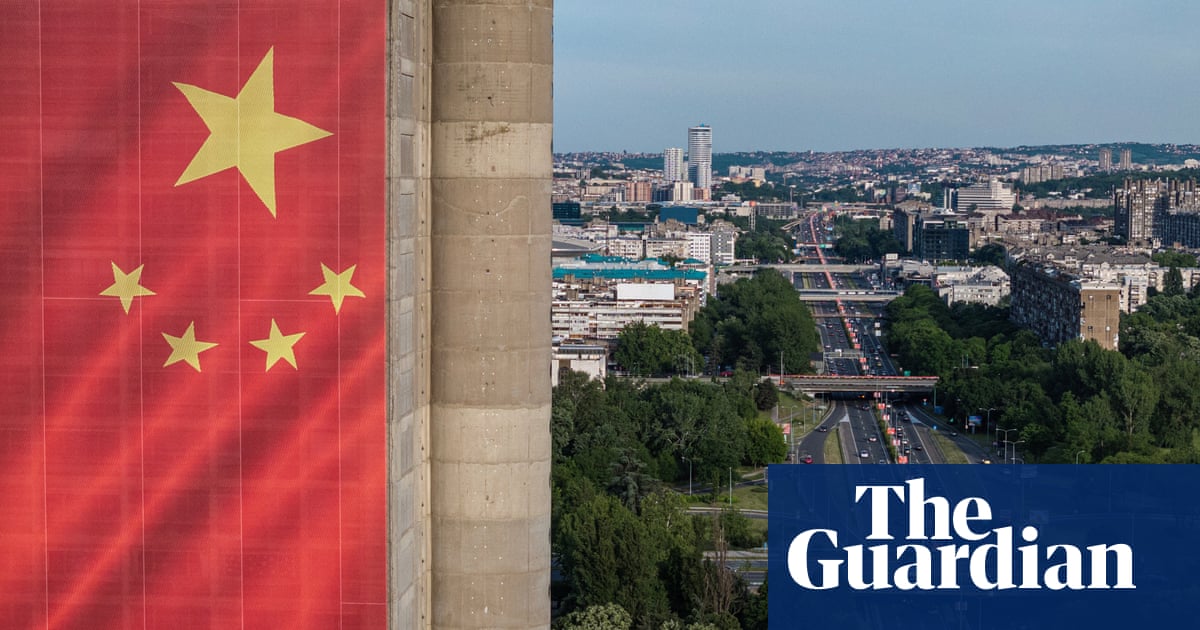As China’s president, Xi Jinping, arrived in Serbia for the second leg of his European tour, authorities across the continent were grappling with a wave of allegations about Chinese spying.
On Tuesday, meanwhile, the UK prime minister, Rishi Sunak, revealed that a “malign actor” had compromised British military payroll records, with reports pointing the finger at China.
In one case, three German citizens were arrested under suspicion of arranging to transfer information about sensitive technology to China. In the other case, a man named as Jian G, who worked for a German far-right member of the European parliament, was arrested under suspicion of espionage. Maximilian Krah, the Alternative for German (AfD) MEP who Jian G worked for, has denied any personal wrongdoing.
And in Belgium, authorities opened a criminal investigation into the far-right politician Frank Creyelman in January, after an investigation by the Financial Times, Der Spiegel and Le Monde alleged that he had been used as a Chinese intelligence asset for several years.
Experts say the recent increase in arrests and investigations reflects a changing mood in Europe towards Chinese threats.
“A lot of this activity has been around a while,” said Martin Thorley, a senior analyst at the Global Initiative against Transnational Organised Crime. “Countries have now been forced confront it, despite the unpalatable nature of dealing with this at the same time as having market dependencies, supply-chain links etc in China. This has been present for a while and has been left too long.”
Roderich Kiesewetter, a German MP and former army officer, said the German secret services had been warning for “several years” about the threat from China but “the warning was … on purpose not heard”.
He noted that the recent arrests in Germany would have sent a “stronger signal” if they had been announced before the chancellor, Olaf Scholz, went to Beijing in April. Instead, they were made public days after Scholz’s return to Germany.
There are also concerns that the pace of Chinese influence operations in Europe – through traditional espionage and more “greyzone” activity such as influence peddling and transnational repression – has intensified, as attitudes towards China have hardened in recent years.
Nigel Inkster, the former deputy chief of MI6, says Europe has been more focused on the threat of Chinese intelligence activities since 2019. “The complexities in the European-Chinese relationship are such that it seems to be almost inevitable that we would see an increase in Chinese activity, both straightforward espionage and influence operations,” he said.
China has dismissed the allegations of espionage as “malicious slander”.
Inkster said the pro-democracy protests in Hong Kong, the revelations about human rights abuses in Xinjiang, China’s support of Russia in the war in Ukraine and concerns about China’s economic behaviour had sharpened the focus of European agencies on Chinese intelligence efforts.
Experts say Chinese spies have three main priorities: to shape political and economic trends in line with China’s interests; gather information on sensitive industries; and to monitor the diaspora populations, particularly minority groups such as Tibetans, Uyghurs and Hongkongers.
When it comes to overseas citizens, Chinese spies have several objectives, says Thorley. “To deter criticism, to court individuals where it might be advantageous, to gather intelligence. The upshot is that many diaspora groups face a double threat of xenophobia when relations with China deteriorate as well as elevated risks of being targeted by Chinese party-state authorities.”
Kiesewetter believes the targeting of diaspora groups is also designed to make them feel “insecure” and spread the message that Germany cannot protect people on its own soil.
China’s objectives were “nuanced and strategic”, Inkster said. “They are not about destruction for its own case. If there is chaos, China will seek to take advantage of it. But that’s a different thing from actually creating the chaos.”
China’s intelligence operations are traditionally understood to be managed by the Ministry of State Security (MSS), which combines intelligence gathering, security services and the secret police. It has been described as a combination of the FBI and the CIA.
In recent months, the MSS has become increasingly vocal about its activities. Last year, the agency launched its own WeChat account, publicising its efforts to root out spies and terrorists. In January, it accused MI6 of recruiting a foreign consultant to spy on China.
But, notes Thorley, there is also a “latent network” of private companies and organisations in the UK that work to further the Chinese Communist party’s interests. “They aren’t micromanaged … however, if the party wants to, it pulls on the leash and gets what it wants.”
That highlights the fact that “China operates asymmetrically”, according to Sari Arho Havrén, an associate fellow at the Royal United Services Institute. “The complexity is quite difficult to detect because we can’t really match the magnitude of resources that China puts in.”

